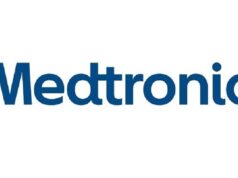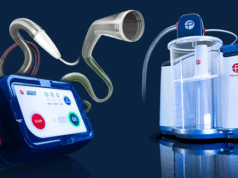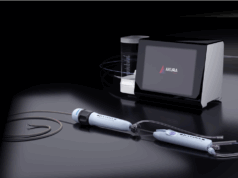
Bristol-Myers Squibb and Pfizer have announced results of a pre-specified secondary analysis of the Eliquis phase 3 AMPLIFY-EXT trial (Apixaban after the initial management of pulmonary embolism and deep vein thrombosis with first-line therapy-extended treatment). The analysis evaluated clinical and demographic predictors of all-cause hospitalisation in patients with venous thromboembolism, which includes deep vein thrombosis and pulmonary embolism. Results from this analysis demonstrated that during the 12-month extended treatment of venous thromboembolism, Eliquis significantly reduced the risk of hospitalisation versus placebo. This effect was independent of other variables including renal function, the only other significant predictor of hospitalisation in the AMPLIFY-EXT population. These data were presented during an oral session in Barcelona, Spain, at the ESC Congress 2014.
“The results of this AMPLIFY-EXT secondary analysis showed that Eliquis significantly reduced the risk of hospitalisation, irrespective of other variables,” says Alexander T Cohen, study investigator and consultant physician, Department of Hematology, Guy’s and St. Thomas’ Hospitals, King’s College, London. “The findings from this secondary analysis provide additional support for extended anticoagulation with Eliquis in venous thromboembolism patients.”
AMPLIFY-EXT was a randomised, double-blind, placebo-controlled extended treatment superiority study with 12 months of treatment plus one month follow-up in patients with venous thromboembolism who completed six to 12 months of anticoagulation therapy. The secondary analysis presented at the ESC congress showed that, compared with placebo, Eliquis 2.5mg (p=0.032) and 5mg (p=0.004) were both associated with significant reduction in all-cause hospitalisation. Of the 2,486 patients included in the AMPLIFY-EXT trial, 138 patients were hospitalised at least once, including 62 (7.48%) in the placebo group (n=829), 42 (5.00%) in the Eliquis 2.5mg group (n=840), and 34 (4.18%) in the Eliquis 5mg group (n=813). Of the first hospitalisations in the placebo group, a total of 32 (51.6%) were attributed to venous thromboembolism recurrence versus six (17.7%) in the Eliquis 5mg group and 11 (26.2%) in the Eliquis 2.5mg group.
The following factors were clinically significant and independent predictors of all-cause hospitalisation during the trial:
- Eliquis 2.5mg versus placebo (HR=0.65, 95% CI=0.43-0.96)
- Eliquis 5mg versus placebo (HR=0.54, 95% CI=0.36-0.83)
- Severe or moderate renal impairment versus normal renal function (HR=2.26, 95% CI=1.30-3.92).
Sex, age, baseline body weight and type of venous thromboembolism did not significantly predict hospitalisation.









